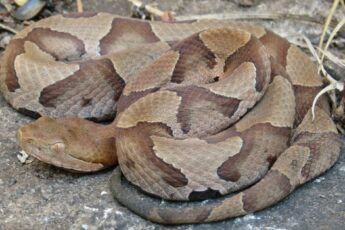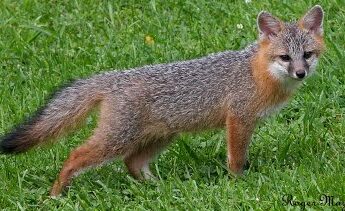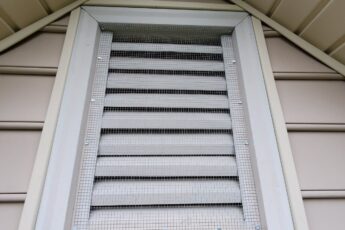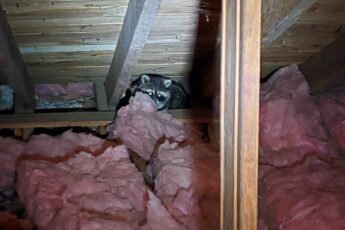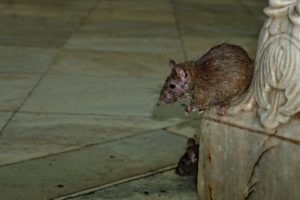
There are many solutions for removing rats and mice from living areas, but the foundation of rodent control is exclusion. If mice and rats never find their way inside your home, there is no need to find a way to remove them. At Midstate Wildlife Solutions, we specialize in removal and exclusion. If you do not currently have any rats or mice in your home, but want to prevent them from getting in, follow the tips in this article and get in touch with us to talk about our exclusion services. If you have unwanted rats or mice in your home, give us a call and we will follow up with an estimate. We will remove the unwanted critters and then prevent them from ever getting back into your home.
Tips for Protecting Your Home from Rats & Mice
- Never leave food scraps on the grounds outside your home.
It’s essential that your trash cans or dumpster should be large enough to hold all food refuse between visits from the garbage collector. There should be no leaks or breaks in the walls of the trash bin, and the lid needs to fit tightly all the time. Drain plugs need to be kept tight so rodents cannot climb into the dumpster, and so a pool of drinking water does not accumulate under the dumpster around which rodents will congregate. Any trash collection container should be placed at least 50 yards (about 50 meters) from the nearest entrance to your home.
- Food trash should always be bagged before it is discarded.
Placing food waste into a sealed container before throwing it into the trash keeps it from becoming food for mice and rats. Never throw a trash bag into a dumpster or garbage can. Always place the trash bag into the trash collection container so it does not break open.
- Seal openings in your walls that could let rodents inside.
A mouse only needs about 6 mm (1/4 of an inch) to crawl inside your home. A rat only needs an opening of about 12 mm (1/2 inch) diameter. If connections for electrical power, water, gas, cable, telephone, and Internet are not sealed, rodents can find their way inside.
- Always repair structural damage as soon as possible.
Holes, depressions, cracks, and crevices provide rodents with shelter from their predators and give them an entryway into your home. Never let structural damage go unattended when repairs are possible.
- Practice clutter control inside your home.
Cluttered closets are an ideal home for mice. A cluttered 5-foot x 5 foot (3 or 4 square meters) bedroom closet can provide a home for several families of mice. A cluttered walk-in pantry can provide a home for several hundred mice. Never allow boxes and “junk piles” to accumulate in closets indoors or out.
- Don’t store firewood directly on the floor.
It’s nice to keep firewood handy for a warming winter fire, but it is important not to store it in a rack, not directly on the floor. Keeping wood at least 3 inches (7-8 cm) off the floor discourages mice from using it as their nest.
If you follow the tips in this article, you will be on track to protecting your home from rats and mice. For more tips on protecting your home from wildlife, check out our other articles! For more information on protecting your home or if you are interested in our services, get in touch with us!



